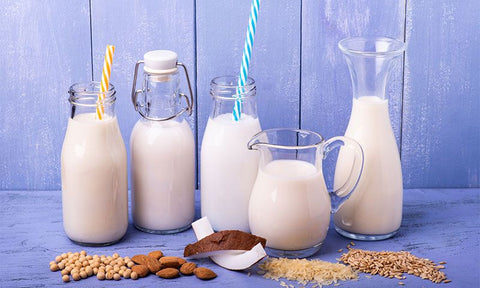The cancer agency admits that scientific evidence is “limited” and the committee of experts maintains the threshold of admissible intake at 40 milligrams per kilo of weight per day.
The WHO has classified it as potentially carcinogenic, however, it is necessary to take into account the daily dose of this sweetener for it to pose a risk.
An agency of the World Health Organization (WHO) recently declared that aspartame, an artificial sweetener widely used in diet drinks and low-sugar foods, could possibly cause cancer.
However, a second WHO committee stood firm in its assessment of the safe level of aspartame consumption.
The statement by a WHO agency on the cancer risk link with aspartame marks the first time the leading international body has publicly weighed in on the effects of the nearly ubiquitous artificial sweetener .
The International Agency for Research on Cancer (IARC) said it based its conclusion that aspartame was a possible carcinogen on limited evidence from three observational studies in humans that the agency said linked consumption of artificially sweetened beverages to an increase in liver cancer — at levels well below a dozen cans a day. It cautioned that the results could potentially be biased toward people who drink the most diet drinks, and called for more studies.
Concerns about rising global rates of obesity and diabetes, as well as changing consumer preferences, have led to an explosion of sugar-free and low-sugar foods and beverages.
Aspartame, one of six sweeteners approved by U.S. regulators, is found in thousands of products, from candy to sugar-free gum, diet sodas, teas, energy drinks and even yogurt. It is also used to sweeten a variety of pharmaceutical products.
Instead, the U.S. Food and Drug Administration (FDA), which approved aspartame decades ago, on Thursday, July 13, issued a rare critique of the global agency’s findings and reiterated its longstanding position that the sweetener is safe. In a statement, the FDA said it “disagrees with the IARC’s conclusion that these studies support the classification of aspartame as a possible human carcinogen.”

What is Aspartame?
Aspartame is an artificial, low-calorie sweetener that is approximately 200 times sweeter than sugar. It is a white, odorless powder.
In Europe, aspartame is authorised for use as a food additive to sweeten a range of food products, including beverages, desserts, confectionery, dairy products, chewing gum, low-calorie and weight-control products and as a table-top sweetener.
The sweetener and its degradation products have been authorised for human consumption for many years, following exhaustive safety assessments.
In the European Union, all food additives whose use was already permitted before 20 January 2009 must undergo a safety re-evaluation by the European Food Safety Authority (EFSA) and this was fully re-evaluated by EFSA in 2013.

Conflict with the Food Industry
The conflict with the food industry could be a given because aspartame is an artificial sweetener that is found in a host of products, from Coca Cola to chewing gum. Although IARC's decisions have sparked controversy and lawsuits in the past and its assessments have been questioned, the food industry fears that its conclusions on aspartame could influence consumer perceptions and generate unnecessary concern.
Indeed, Francesco Branca, director of the WHO's Department of Nutrition, Health and Development, was quick to declare that "we are not advising companies to withdraw their products or advising consumers to stop consuming them altogether."

Where will we find it?
Aspartame is found in more than 6,000 products currently on the market and is consumed by more than 200 million people worldwide. It is usually present in products classified as "light", sugar-free, or dietetic, and is also included in soft drinks and juices, chewing gum, gelatin, ice cream, yogurt, some cereals, syrup, toothpaste and chewable vitamins, among others.
As for the quantities used in products, these are usually small and therefore moderate consumption would not be a problem. A can of soft drink, for example, can contain 200 to 300 mg of aspartame.
This means that according to the European daily intake limits, an adult weighing 70 kilos could consume up to 2,800 mg of aspartame daily, the equivalent of 9 to 14 cans of soft drink per day.
In fact, it is a common ingredient in many drinks and foods, especially desserts, sweets, ice creams, yogurts, chewing gum and low-calorie products, among which the following stand out:
Sweetened soft drinks and diet drinks.
Non-alcoholic beers, ciders and other alcoholic beverages, non-alcoholic or in cocktails and mixes.
Fruit, vegetable and garden produce preparations.
Breakfast cereals.
Pastries, cakes, ice cream, biscuits and yoghurts.
Jams, compotes, jellies and fruit nectars.
Spreads.
Cocoa and chocolate products.
-
Nuts or dried fruits.
Confectionery products and wafers.
Pills and candies without added sugars.
Gum without added sugars.
Sauces and soups.
Snacks and preserves.
Liquid, powdered or tablet tabletop sweeteners.
Medications and special dietary foods.

How do we know if a product contains Aspartame?
European legislation requires that aspartame must be identified on the labelling of foods containing it.
The Catalan Food Safety Agency (ACSA) explains that, as with other food additives , their presence is indicated by the letter E, followed by a numerical code. In this case, the presence of aspartame corresponds to the code E-951.
Furthermore, as with any other sweetener, the statement "with sweetener(s)" must be included on the label next to the name of the food .

Is it better to consume sugar?
Experts have been quick to stress that the link between aspartame and cancer does not make sugar a preferable alternative . For example, excessive sugar consumption can also contribute to obesity, which is a major risk factor for cancer.
Tom Sanders, emeritus professor of nutrition and dietetics at King's College London, criticised the guidelines for failing to take into account "the real-world situation", particularly in the field of dietetics.
"Sometimes you're trying to get people to control their weight, meaning reduce their calorie intake, and if they're drinking a sugary drink, it can be helpful to switch to a low-calorie or no-calorie drink," she told news channels.
Experts stress that substances with compelling evidence - for example, processed meat - or probable cancer risk should be avoided, but those in the "possible category" are probably "not worth worrying about" because the evidence is limited.
Almost any substance can be dangerous in excessive amounts, says David Klurfeld, a nutrition expert at Indiana University-Bloomington's School of Public Health.
"Even essential nutrients like vitamin A, iron and water can kill within hours if consumed in excess."
Alternatives to sweeteners: natural sweeteners without refined sugars
Stevia
-
Pure bee honey
Maple or agave syrup
Dates
Coconut sugar
Panela
Birch molasses
Jams that are 100% fruitEuropean legislation requires that aspartame must be identified on the labelling of foods that contain it.

https://es.euronews.com/next/2023/07/17/el-aspartamo-es-una-posible-causa-de-cancer-que-productos-europeos-contienen-este-edulcora
https://www.nytimes.com/es/2023/07/16/espanol/cancer-aspartame-endulzante-artificial.html
https://cuidateplus.marca.com/alimentacion/nutricion/2023/07/14/aspartamo-implica-edulcorante-sea-posibilidad-cancerigeno-180660.html
-
https://www.efsa.europa.eu/es/topics/topic/aspartame
https://www.nationalgeographic.com.es/ciencia/que-debes-saber-sobre-aspartamo_20349
https://www.sabervivirtv.com/actualidad/productos-aspartamo-espana-donde-esta-educorante-cancerigeno-segun-oms_8355





Comments (0)
There are no comments for this article. Be the first one to leave a message!